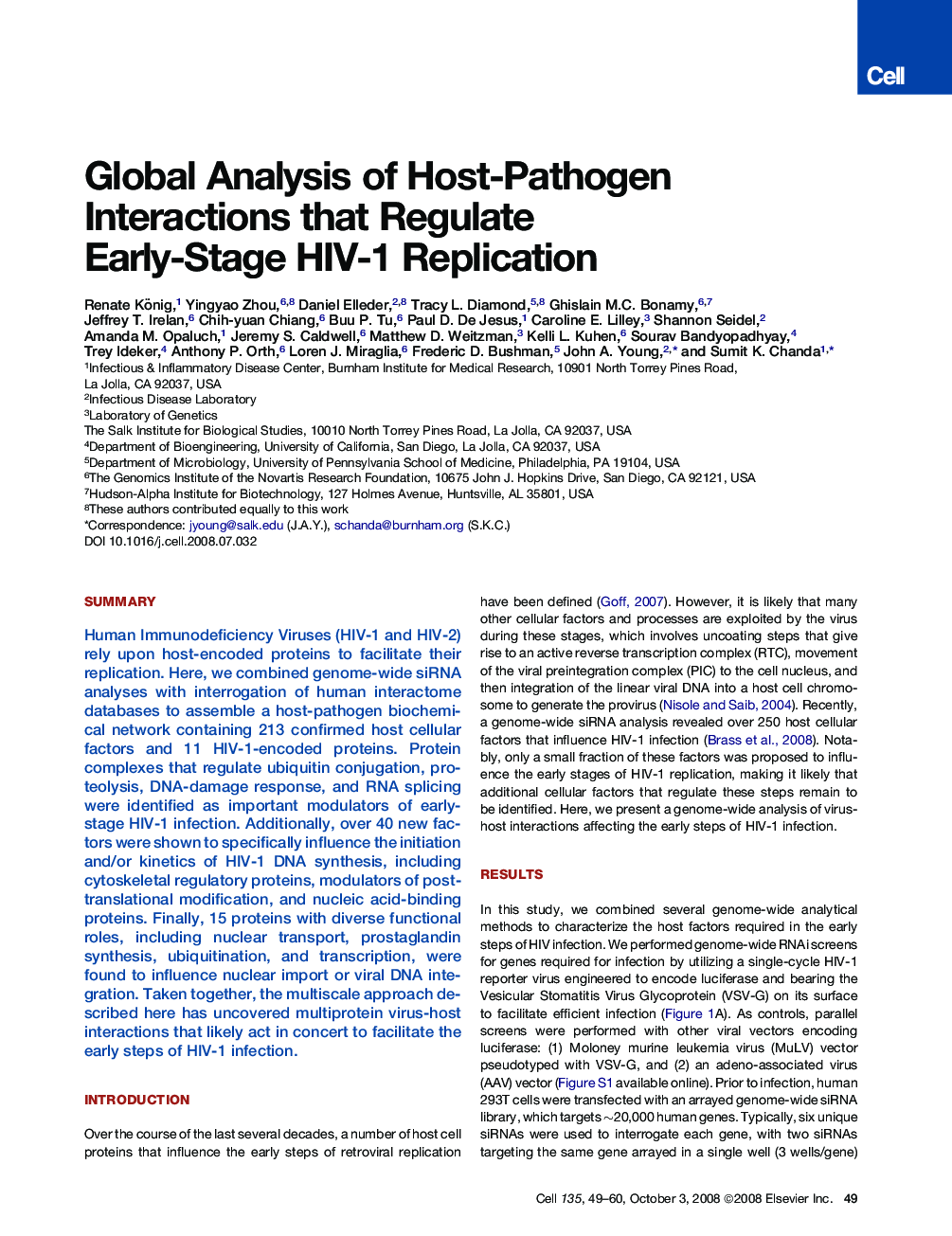| Article ID | Journal | Published Year | Pages | File Type |
|---|---|---|---|---|
| 2037933 | Cell | 2008 | 12 Pages |
SummaryHuman Immunodeficiency Viruses (HIV-1 and HIV-2) rely upon host-encoded proteins to facilitate their replication. Here, we combined genome-wide siRNA analyses with interrogation of human interactome databases to assemble a host-pathogen biochemical network containing 213 confirmed host cellular factors and 11 HIV-1-encoded proteins. Protein complexes that regulate ubiquitin conjugation, proteolysis, DNA-damage response, and RNA splicing were identified as important modulators of early-stage HIV-1 infection. Additionally, over 40 new factors were shown to specifically influence the initiation and/or kinetics of HIV-1 DNA synthesis, including cytoskeletal regulatory proteins, modulators of posttranslational modification, and nucleic acid-binding proteins. Finally, 15 proteins with diverse functional roles, including nuclear transport, prostaglandin synthesis, ubiquitination, and transcription, were found to influence nuclear import or viral DNA integration. Taken together, the multiscale approach described here has uncovered multiprotein virus-host interactions that likely act in concert to facilitate the early steps of HIV-1 infection.
